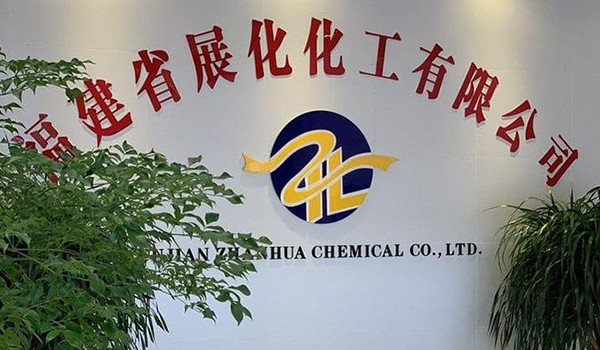Ammonium Persulfate, a critical industrial chemical, finds extensive applications in chemical, agricultural, and environmental protection sectors. It serves not only as a key raw material in polymer synthesis but also as a common agent in metal surface treatment and wastewater processing. Its quality and safety directly impact the performance and effectiveness of downstream products. Therefore, selecting a supplier of industrial-grade Ammonium Persulfate with complete qualifications and reliable quality is of utmost importance. However, with numerous suppliers in the market, how users can accurately inquire about and evaluate the qualifications of these suppliers has become a topic worthy of in-depth discussion.

1. Industrial Applications and Quality Requirements of Ammonium Persulfate
Ammonium Persulfate, an inorganic compound with the chemical formula (NH₄)₂S₂O₈, exhibits good chemical stability under normal temperature and dry conditions but readily decomposes to generate active free radicals in high-temperature or acidic environments. In industrial production, it is widely used to initiate polymerization reactions, oxidize organic or inorganic substances, and serve as a key oxidizer in the synthesis of agricultural pesticide intermediates. The distinguishing feature of industrial-grade Ammonium Persulfate from ordinary chemicals lies in its higher purity and lower impurity content, meeting the requirements of high-standard production. Consequently, a supplier’s quality management system and production capabilities directly determine product quality.
2. Core Evaluation Dimensions for Supplier Qualifications
When selecting suppliers, qualification certifications are the primary consideration. Certifications such as ISO 9001 (quality management system), ISO 14001 (environmental management system), and safety production licenses are important indicators for measuring a manufacturer’s compliance and management standards. These certifications not only demonstrate the manufacturer’s procedural regularity in production but also provide users with a guarantee of quality. While qualification certification is the foundation of a company’s compliant production, production capacity is the core to ensuring continuous supply and product quality.
Quality control is another critical factor. Excellent suppliers must have a robust quality management system and advanced testing equipment. For example, manufacturers certified under ISO 9001 typically have strict quality control procedures to ensure each batch of products meets standards. After-sales service is equally important: timely technical support and problem-solving capabilities can provide users with additional safeguards and reduce potential risks during cooperation.
3. Specific Channels and Operation Guides for Qualification Inquiry
There are multiple channels to inquire about supplier qualifications. First, users can obtain relevant information—such as qualification certificates and production capacity descriptions—through the manufacturer’s official website. Official websites often showcase a company’s core strengths and certification status, serving as an important channel to understand basic corporate information. Second, industry associations and organizations are valuable for verifying a manufacturer’s legitimacy and reputation. Recommendations and evaluations from industry associations are often highly credible and can provide users with valuable references. Additionally, third-party certification platforms (such as Tianyancha and Qichacha) offer an efficient way to query a company’s business registration information, qualification certifications, and other public records. If conditions permit, on-site inspections of the manufacturer’s production facilities and quality management systems can provide a more intuitive understanding of their operations. Through on-site visits, users can observe production environments, equipment conditions, and quality control processes firsthand to make more accurate judgments.
During qualification inquiries, production licenses are a fundamental requirement, and users should verify their validity through official channels. Environmental compliance is equally important: checking whether a manufacturer’s environmental qualifications and emission standards comply with national and local regulations helps users avoid potential risks in cooperation. In terms of quality certifications, ISO 9001 and ISO 14001 are key bases for evaluating a manufacturer’s management standards. Industry reputation and customer reviews are also effective ways to measure a supplier’s credibility. Through communication with other users and feedback, users can gain a more comprehensive understanding of a manufacturer’s actual performance and service quality.
4. Case Study: Fujian ZhanHua Chemical’s Qualifications
Take Fujian ZhanHua Chemical as an example, a high-tech enterprise specializing in persulfate products with an annual production capacity of 75,000 tons of Ammonium Persulfate, making it one of the world’s leading persulfate manufacturers. It holds complete qualifications, including ISO 9001 (quality management system) and ISO 14001 (environmental management system) certifications, and boasts strong production capabilities and advanced technology. Currently, Fujian ZhanHua Chemical is advancing its Phase III project, which will increase its annual Ammonium Persulfate production capacity to 135,000 tons upon completion, further consolidating its global leadership in the persulfate sector. Such enterprises’ qualifications and strengths provide users with more reliable guarantees.
It is recommended that users employ multiple channels for comprehensive verification to avoid information bias from single sources when querying supplier qualifications. Multi-channel inquiries help users gain a more comprehensive understanding of manufacturers to ensure the safety and reliability of cooperation. Before signing contracts, clarifying quality clauses and after-sales service requirements can protect users’ rights and interests during collaboration. Additionally, periodic reviews of suppliers’ qualifications after the start of cooperation ensure the compliance and stability of long-term partnerships.
conclusion
Qualification inquiry for industrial Ammonium Persulfate suppliers is not a simple task but a critical step to ensure product quality and safety. By verifying through multiple channels and comprehensively evaluating suppliers’ qualifications and capabilities, users can identify trustworthy partners. Choosing a compliant and high-quality supplier not only improves production efficiency but also injects new momentum into the industry’s high-quality development. Whether in chemical, agricultural, or environmental protection fields, the application prospects of Ammonium Persulfate are extremely broad, and finding the right supplier is the key to realizing this vision.